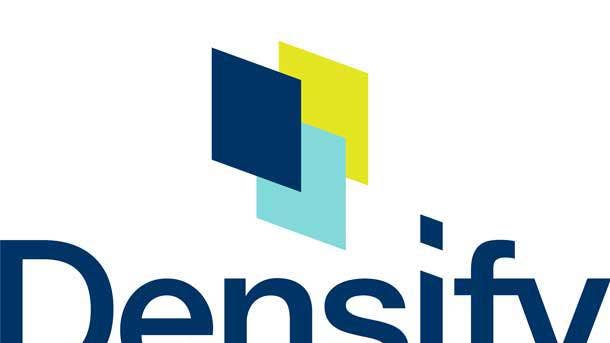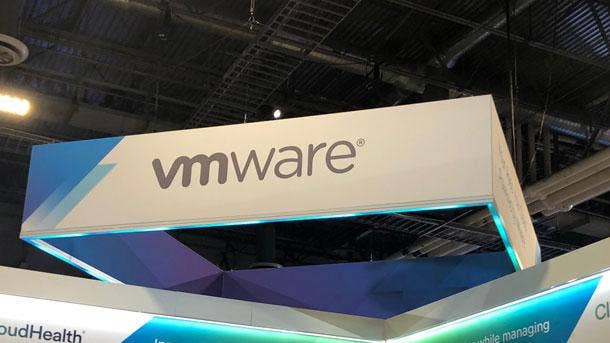VMware’s vRealize $236M Patent Infringement Loss: 5 Things To Know
A Delaware federal jury found VMware guilty of patent infringement around its vRealize Operations software and will be forced to pay $236 million to optimization software company Densify.

VMware To Pay $236 Million To Densify: Here’s Why
VMware is being forced to pay damages of approximately $236 million to cloud optimization software company Densify, which claimed the virtualization superstar infringed on its software patents and committed trademark infringement.
After a nine-day trial, a Delaware federal jury found in favor of Toronto-based Densify, formerly known as Cirba, concluding that VMware infringed on two of its patents and engaged in unfair competition that caused harm to Densify.
“Unfortunately, VMware, a great company, made a bad mistake, and used Densify’s intellectual property,” said Densify CEO Gerry Smith in a statement last year after filing the lawsuit.
Here is what you need to know about VMware’s patent infringement case loss, Densify’s technology and what the visualization star has to say about the verdict.

The Case
The technology patent infringement case revolves around new versions of VMware’s vRealize Operations software.
Densify claims that VMware’s vRealize Operations (vROps) 7.0, vRealize Operations 7.5 and its Predictive DRS release infringes on two Densify patents around virtual guest-host placement services -- patent numbers US8209687 and US9654367.
Densify alleges vROps versions 7.0 and 7.5 are too similar to its patented predictive analytics software. Additionally, Densify said VMware’s Predictive DRS is similar to a core Densify feature to provide predictable patterns of resource usage.
The patents asserted by Densify cover technology and capabilities that optimize how software applications utilize computing resources in the cloud and on-premise data centers.
Densify alleges VMware used infringing technology when it released vROps 7.0 and vROps 7.5 and is a threat to Densify’s virtual infrastructure optimization IP. For example, Densify said VMware’s vROps 7.0 added a “automated host based placement” feature that directly competes with a Densify product that VMware has knowledge about.
“We’ve built an innovative and rapidly growing business that provides our many enterprise customers critically-needed technology,” said Densify CEO Gerry Smith in April 2019. “Unfortunately, VMware, a great company, made a bad mistake, and used Densify’s intellectual property. Like any small, successful technology company, the only way we can effectively compete with larger companies is by having a fair and level playing field where intellectual property rights are respected.”

Trademark Infringement
In addition to IP patent infringement, Densify also alleged trademark infringement, saying VMware created confusion in consumers’ minds that hurt business.
In terms of trademark infringement and unfair competition, Densify said VMware not only copied its technology but used the name ‘Densify’ in reference to VMware’s products. An example included when VMware identified a vROps feature as “Workload Optimization – Densifying to Repurpose Hosts,” according to Densify.
“VMware uses the marks to increase the commercial value of its products and services by creating an association with Densify’s award winning optimization products,” said Densify in the complaint.
Densify initially filed the patent infringement and unfair competition complaint in the District of Delaware against VMware in April 2019. The Delaware federal jury decided in favor of Densify on Jan. 24, 2020. VMware will ultimately need to pay $236 million to Densify.

Who Is Densify?
Densify has worked with VMware extensively in the past around technology integrations, but alleges that over the years, VMware has become more of a competitor. Densify offers an infrastructure optimization product through its Cloud-Learning Optimization Engine, dubbed Cloe, which complements VMware’s products to help optimize applications for the cloud.
Densify dubs itself as the most advanced resource management platform for virtual, cloud and container infrastructure. The privately held, venture capital-backed company specializes in predictive analytic services that optimizes businesses hybrid cloud in real time. Global 5,000 organizations and service providers leverage Densify to operate with less infrastructure and lower cloud costs, while delivering better application performance.
Through machine learning, Densify’s solution continuously aligns infrastructure supply with application demands, providing customers with increased automation, lower operational risk, improved application performance and reduced hosting costs.
Prior to its patent dispute with VMware, Densify had never gone to court for patent issues.

VMware’s Response
CRN reached out to VMware for comment on the matter. In an email to CRN, a VMware spokesperson told CRN that it intends to continue to fight the case to prove its innocence.
“While we appreciate and respect the judicial process, we continue to strongly believe that we do not infringe the patents asserted against us in this case, and intend to vigorously pursue all legal remedies that are available to us to prove that we are not liable here,” said a VMware spokesperson.
VMware also added that it is “proud of its history as an innovator and leader in the enterprise software space.”

VMware Stock Drop
Since the news of VMware’s $236 million patent infringement loss on Jan. 24, the company’s stock has dropped 5 percent.
On Jan. 24, VMware’ stock reached $155.20 per share in the morning. However, the company’s stock is now trading at around $146.80 per share as of Monday afternoon. VMware’s stock has not traded lower than $146 per share since September 2019.
The Palo Alto, Calif.-based company, which is owned by Dell Technologies, still has a market cap of $60 billion. Investment firms are bullish about VMware’s stock in 2020 as the company looks to double down on security and container innovation as well as shift its business model toward subscriptions and Software as a Service.